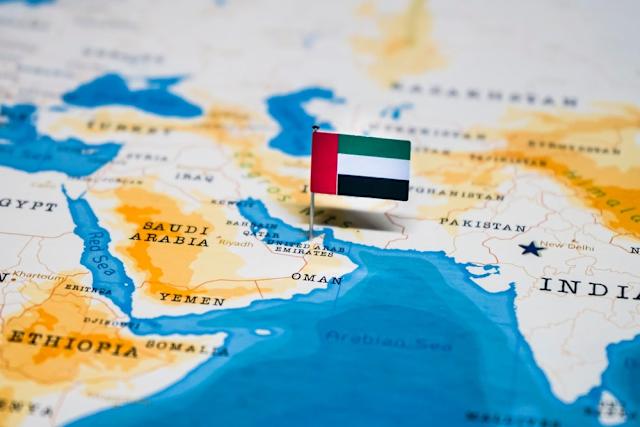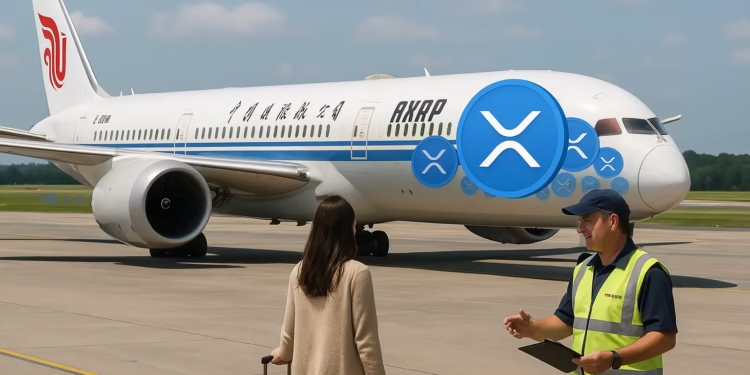Webus International has reached a deal with Air China that could make XRP payments available to more than 60 million members of the airline’s PhoenixMiles loyalty program. While the plan signals major potential for crypto adoption in the travel sector, the rollout of an Air China XRP payment option still depends on regulatory clearance and future business steps.
According to the announcement, the first phase of the partnership will integrate Wetour Webus’ premium chauffeur and airport transfer platform into PhoenixMiles. Wetour already lists XRP as a payment method alongside Ripple’s RLUSD stablecoin, making the agreement a notable entry point for Air China XRP payment adoption.
“This partnership reflects the growing demand for seamless payment choices in travel and hospitality,” said Li Chen, Director of PhoenixMiles at Air China, in a statement. “We are closely evaluating how blockchain-based solutions like XRP can enhance loyalty services.”
XRP’s speed and cost appeal
Webus executives have argued that XRP’s low-cost settlement model makes it particularly well-suited for the travel industry. The XRP Ledger (XRPL) typically processes transactions within three to five seconds at a cost of less than one cent of the advantages that could benefit both airlines and passengers.
Such efficiencies have drawn attention from companies looking to integrate token-based payments for vouchers, travel credits, and promotional rewards. The proposed Air China XRP payment option could, in theory, allow PhoenixMiles members to book services or redeem rewards more quickly than with traditional payment systems.
“For me, it shows adoption of XRP in a real use case,” said Bill Morgan, a blockchain attorney who has followed Ripple developments closely. “Even if initial usage is limited, the direction of travel is important.”
Big numbers versus real-world use
The headline figure of 60 million PhoenixMiles members underscores the scale of the potential integration. But analysts caution that access does not guarantee active usage. Loyalty programs often include members who rarely engage with benefits or travel infrequently.
In practice, early adoption of the Air China XRP payment option is likely to be concentrated among premium travelers, particularly those using Wetour’s chauffeur and transfer services. Webus has also indicated that promotional coupons may be one of the first applications.
Still, pilot programs in digital payments often start small. If the service proves efficient and user-friendly, usage could expand across a broader segment of PhoenixMiles’ membership base. For crypto investors, even limited uptake could validate XRP’s role in a large consumer-facing ecosystem.
Regulatory and business hurdles ahead
The deal remains contingent on regulatory approval and further operational agreements. Payments and loyalty programs intersect with strict local rules on financial services, anti-money laundering (AML) compliance, and cross-border transactions. As a result, a full-scale Air China XRP payment rollout may take considerable time to materialize.
Bybit, a partner exchange in the region, noted that stablecoin and token-based payment frameworks often face delays due to compliance reviews. “These methods are functional but often involve complex approvals,” a spokesperson said.
For Webus, the move builds on earlier steps that lend credibility to its crypto ambitions. In June, the company filed with the SEC to establish a $300 million treasury reserve and announced plans to use the XRP Ledger for cross-border transactions. Together, those initiatives suggest the Air China XRP payment announcement is more than a one-off marketing move.
Implications for crypto adoption in travel
The Air China agreement represents a significant test case for XRP’s role in mainstream industries. If successful, the Air China XRP payment model could expand to other airline partnerships and loyalty ecosystems across Asia and beyond.
“Travel is a natural proving ground for blockchain payments because of its global, cross-currency nature,” said Monica Long, President at Ripple, in an earlier industry forum. “The ability to settle transactions quickly and transparently can improve both customer experience and operational efficiency.”
For crypto investors, the significance lies not just in numbers but in validation. A partnership that positions XRP within a loyalty program of Air China’s scale could influence broader perceptions of digital asset utility, even if initial usage remains modest.
As regulatory approvals unfold and pilot services launch, the coming months will show whether the Air China XRP payment initiative marks a turning point for Ripple’s token in global commerce or remains an early-stage experiment.











